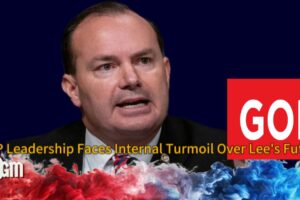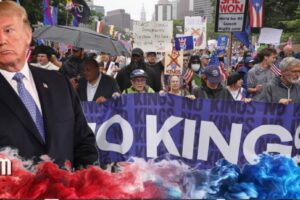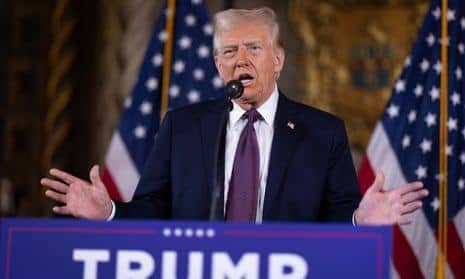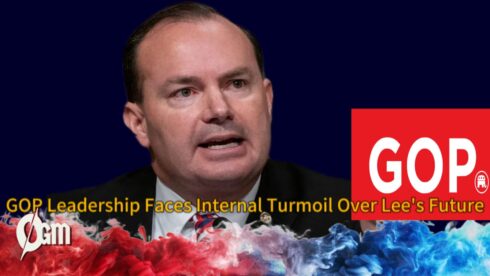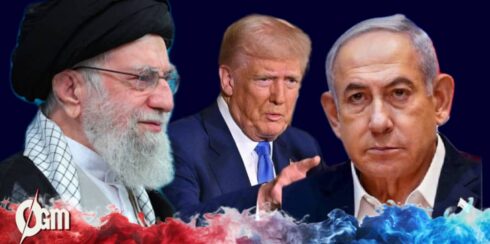As Donald Trump prepares to assume office, his nominees for key positions are facing intense scrutiny in the Senate confirmation hearings. These hearings, starting Tuesday, will determine whether the nominees are approved or rejected for their respective roles. Despite the Republican majority in the Senate, just three defections could derail a nominee’s appointment. Here’s a breakdown of the tricky questions these nominees are expected to face.
Pete Hegseth – Defence Secretary
One of the most anticipated confirmation hearings involves Pete Hegseth, Trump’s nominee for defence secretary. Hegseth, a military veteran and former Fox News host, is likely to face questions about his controversial past. Senators are expected to probe his lack of management experience and past opposition to women in combative roles.
Hegseth’s personal life could also take center stage, particularly an accusation of sexual assault in a California hotel room in 2017. While he denies the allegation and maintains the encounter was consensual, the case was settled confidentially in 2023 to prevent a lawsuit. Critics argue this raises questions about his judgment and leadership. Trump, however, has steadfastly supported Hegseth, who has been lobbying senators to secure the votes needed for confirmation.
Kristi Noem – Homeland Security Secretary
Kristi Noem, nominated as homeland security secretary, is set to face intense scrutiny on Wednesday. A central issue will be her role in executing Trump’s controversial pledge for mass deportations of undocumented immigrants, billed as the largest in U.S. history. Senators are likely to challenge her on the logistical and legal hurdles such a program might face.
Additionally, Noem could be questioned about other immigration policies, including Trump’s proposal to end birthright citizenship. A staunch supporter of Trump’s immigration agenda, Noem’s alignment with the president-elect’s controversial policies could become a focal point during her hearing.
Marco Rubio – Secretary of State
Marco Rubio, Trump’s pick for secretary of state, has come full circle from once challenging Trump’s policies to becoming one of his closest allies. Rubio, who questioned Rex Tillerson during his 2017 confirmation hearing, is now on the receiving end of a similar process.
While Rubio’s confirmation is expected to face little resistance, senators could test his loyalty to Trump. Questions about future U.S. support for Ukraine amid its war with Russia may highlight potential tensions. Trump has characterized aid to Ukraine as a drain on resources, a stance that contrasts with Rubio’s traditionally hawkish foreign policy views.
Howard Lutnick – Commerce Secretary
Howard Lutnick, a billionaire and CEO of Cantor Fitzgerald, is another nominee likely to face challenging questions. As Trump’s choice for commerce secretary, Lutnick would play a key role in implementing sweeping tariffs aimed at protecting U.S. jobs.
Senators are expected to probe the economic impact of these tariffs, particularly their potential effects on consumers and U.S. trade partners. While Lutnick has supported Trump’s trade policies, his stance contrasts sharply with many in his industry and leading economists. His confirmation hearing, though unscheduled, promises to be a litmus test for his commitment to Trump’s economic vision.
Tulsi Gabbard: A Controversial Intelligence Director Pick
Tulsi Gabbard, Trump’s choice for National Intelligence Director, is expected to face bipartisan scrutiny over her past foreign policy stances. Known for her opposition to U.S. interventionist policies, Gabbard has been vocal about engaging adversaries like Russia and Syria in dialogue. Her controversial meeting with Syrian President Bashar al-Assad in 2017, where she questioned U.S. intelligence linking him to chemical weapon attacks, remains a contentious issue. Senators are likely to grill her on whether her positions align with the nation’s intelligence priorities.
Gabbard’s stance on Russia could also ignite debate, particularly her comments during the 2022 Ukraine crisis when she blamed NATO for provoking Russia and echoed Kremlin narratives about U.S.-funded biolabs in Ukraine. While her military background adds credibility, Democrats are reportedly delaying her hearing to complete thorough background checks. Questions about her impartiality and alignment with Trump’s agenda will dominate the confirmation process.
Robert F. Kennedy Jr.: Health Leadership Without Medical Credentials
Robert F. Kennedy Jr.’s nomination as Secretary of Health and Human Services is one of Trump’s most unconventional choices. Kennedy’s lack of medical qualifications raises immediate concerns, as does his history of promoting debunked claims about vaccine safety. Senators are likely to question his scientific credibility and his ability to lead the nation’s healthcare initiatives, especially in the wake of a pandemic.
While Kennedy has denied being anti-vaccine, his statements contradict established scientific consensus, making him a polarizing figure. However, his advocacy for scrutinizing food additives and environmental health issues might garner bipartisan support. The hearings will focus on whether Kennedy can separate personal beliefs from professional responsibilities, and whether his nomination signals a broader shift in Trump’s healthcare policy priorities.
Kash Patel: Controversies Surrounding FBI Leadership
Kash Patel’s nomination as FBI Director has drawn sharp criticism from former law enforcement officials and political analysts. Patel, a lawyer with national security experience, has faced accusations of being unqualified to lead the FBI. Critics argue that his close ties to Trump and public statements about targeting media and political opponents suggest a politicized agenda.
Patel’s declared intention to overhaul the FBI, including a potential purge of senior staff, raises alarm among Senate Democrats and some moderate Republicans. Supporters, however, highlight his legal expertise and national security background as assets for reforming the agency. Senators will likely probe Patel on his plans for the FBI’s future, focusing on whether his leadership would prioritize impartial justice or serve Trump’s political interests.
A Test of Trump’s Influence and Senate Unity
The confirmation hearings for Trump’s nominees will test the Senate’s ability to balance party loyalty with national interest. While the Republican majority in the chamber gives Trump an advantage, just three defections could derail any nomination. These hearings also highlight deeper questions about the direction of U.S. governance under Trump’s leadership.
The nominees’ backgrounds and policy positions reflect Trump’s unconventional approach to governance, often prioritizing loyalty over traditional qualifications. The outcomes of these hearings will not only determine the fate of these nominees but also set the tone for Trump’s administration. With public and political scrutiny at an all-time high, the stakes for these hearings could not be higher.


